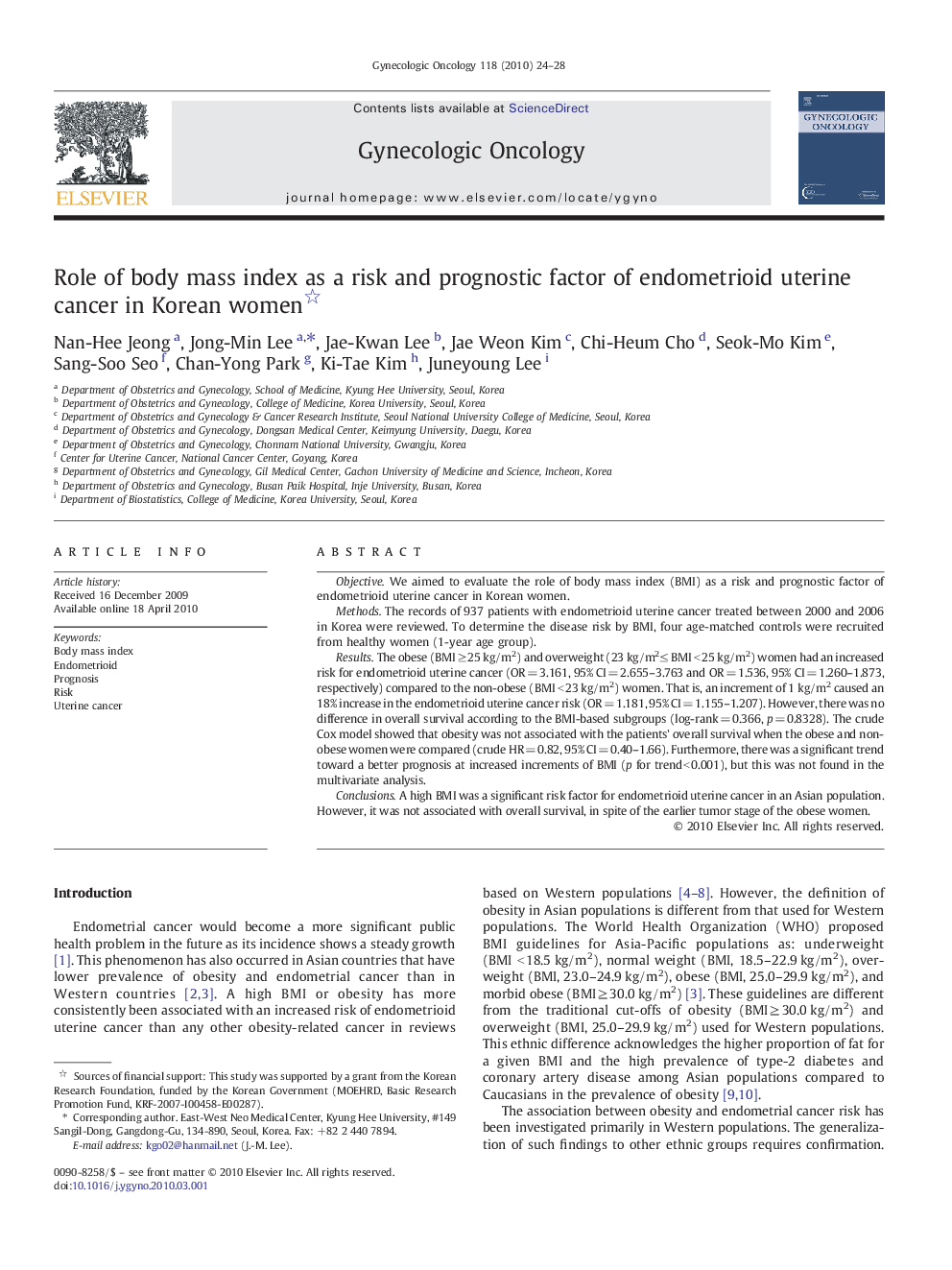| Article ID | Journal | Published Year | Pages | File Type |
|---|---|---|---|---|
| 3945660 | Gynecologic Oncology | 2010 | 5 Pages |
ObjectiveWe aimed to evaluate the role of body mass index (BMI) as a risk and prognostic factor of endometrioid uterine cancer in Korean women.MethodsThe records of 937 patients with endometrioid uterine cancer treated between 2000 and 2006 in Korea were reviewed. To determine the disease risk by BMI, four age-matched controls were recruited from healthy women (1-year age group).ResultsThe obese (BMI ≥ 25 kg/m2) and overweight (23 kg/m2≤ BMI < 25 kg/m2) women had an increased risk for endometrioid uterine cancer (OR = 3.161, 95% CI = 2.655–3.763 and OR = 1.536, 95% CI = 1.260–1.873, respectively) compared to the non-obese (BMI < 23 kg/m2) women. That is, an increment of 1 kg/m2 caused an 18% increase in the endometrioid uterine cancer risk (OR = 1.181, 95% CI = 1.155–1.207). However, there was no difference in overall survival according to the BMI-based subgroups (log-rank = 0.366, p = 0.8328). The crude Cox model showed that obesity was not associated with the patients' overall survival when the obese and non-obese women were compared (crude HR = 0.82, 95% CI = 0.40–1.66). Furthermore, there was a significant trend toward a better prognosis at increased increments of BMI (p for trend < 0.001), but this was not found in the multivariate analysis.ConclusionsA high BMI was a significant risk factor for endometrioid uterine cancer in an Asian population. However, it was not associated with overall survival, in spite of the earlier tumor stage of the obese women.
